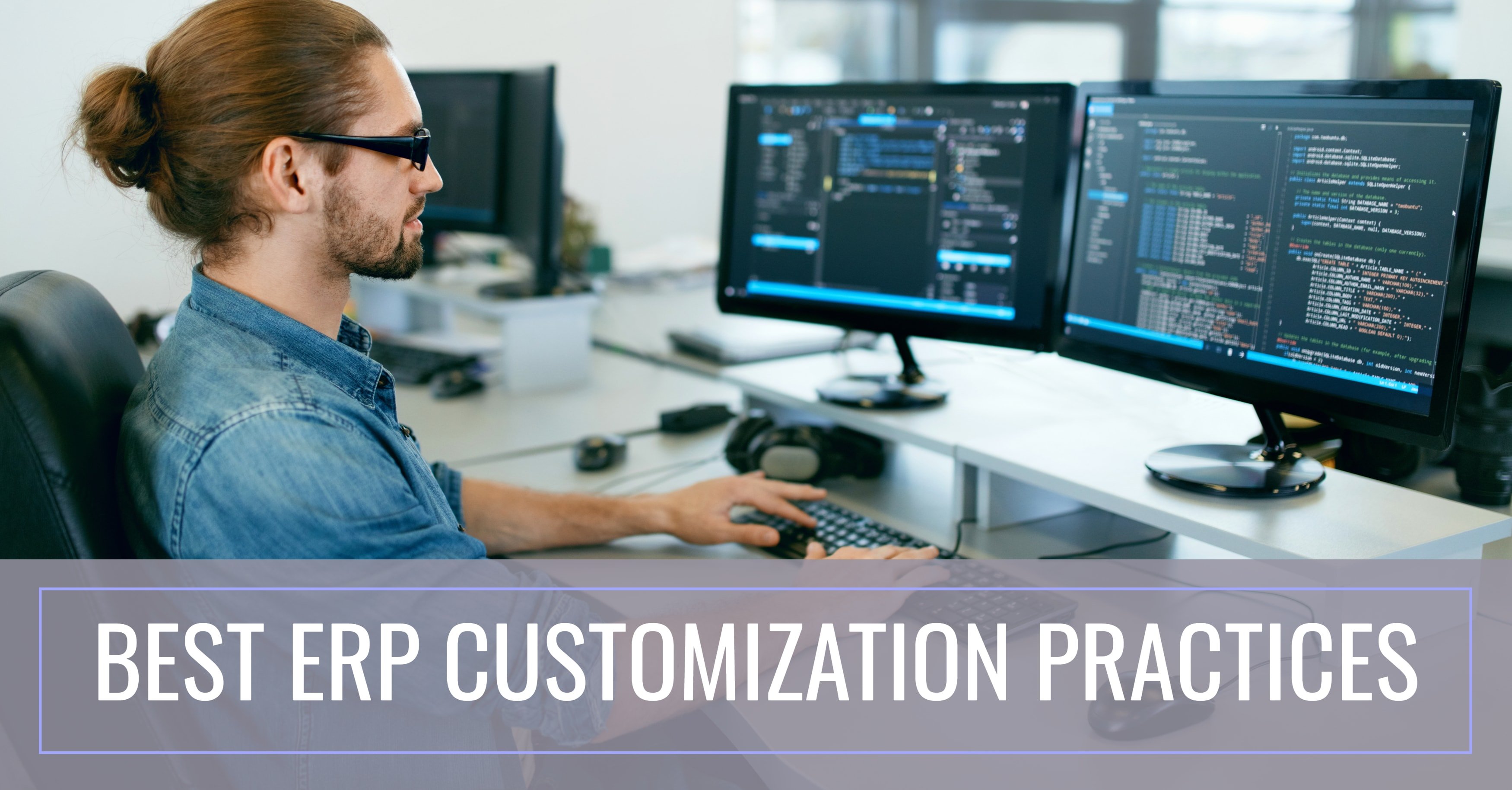Best ERP Customization Practices
Though enterprise resource planning (ERP) consultants recommend considering configuration options before tackling software customizations, there are few ERP instances with zero customized features. In fact, Panorama’s 2018 ERP Report found an uptick in software customizations this past year, especially among larger manufacturers. This increase may sound alarming, but there are cases in which an ERP configuration just won’t cut it. Since ERP customizations do come at the risk of delaying implementations or complicating upgrades, it’s critical to exercise best ERP customization practices throughout the project. Keep reading to find out how to correctly execute your ERP customization.
Define Business Objectives
Clearly defined business objectives are essential in every stage of every software project. Without specified goals and documented processes, the customization is bound to go astray. Project teams might discover far too late that their chosen ERP system doesn’t satisfy user needs, necessitating extensive customizations. Or, if goals are established or changed late in the process, IT professionals might find themselves rigging together a customization to meet these new developments, rather than exploring configuration options. On the other hand, when objectives are defined from the outset of a project, teams can plan appropriate customizations to get the most from the ERP instance.
Improve User Adoption
Employees often perform complex, highly specified operations that no ERP system supports out of the box. However, that doesn’t mean that project teams should immediately set out to customize the instance to meet these specific user needs. Messing with the source code in order to help one department could sacrifice usability for other employees or just amount to too much time and money. Determine if these users really can’t perform tasks without customizable features. Most likely, there will be an even better method supported by the new software. Work with users and provide comprehensive training to help them discover how their ERP instance provides new and improved ways of doing their job.
Having said that, you may find that a specific customization is essential for most users. In those cases, it’s probably best to build that customization. Without doing so, you risk poor user adoption.
Differentiate Your Business
One of the main drivers for ERP customization is differentiating your business. To distinguish your enterprise from the rest of the field, it’s imperative to have a distinct system, one that supports your unique, complex processes and offers services and customer experiences that nobody can rival. It’s this strategy that often propels manufacturers to the top and enables them to hold that ranking for a long time. When looking at customizing your ERP instance, articulate how specific modifications will help your business deliver unparalleled products and services. Put in place KPIs to measure the success of your customization, and perform a cost-benefit analysis to determine if the planned customization is really giving your company a competitive edge.
This information may trouble smaller firms. How can SMBs compete with manufacturing behemoths and their fully-customized ERP solutions? The truth is that they can’t—yet. However, businesses of any size can begin their ERP journey with an out-of-the-box Epicor implementation and expand their solution overtime. Well-executed ERP implementations will generate ROI quickly, enabling businesses to grow. Epicor’s scalability empowers businesses to modify their systems with add-on features, configurations, customizations and integrations to create a unique solution that makes them stand out from the competition.
Team Up with Consultants
As we’ve established, there’s a plethora of considerations that need to be explored to determine whether an ERP customization is the right choice. Furthermore, project teams must execute these customizations without sacrificing the performance of the system or surpassing the budget and timeline. Delegating all of this responsibility to your IT department is never a good idea. After all, IT teams already have a lot on their plate.
This is where ERP consultants come in handy. These experts have been through countless ERP projects, making them customization specialists. Once you find the consulting firm that fits your company, you can take off the pressure from IT teams and have the pros guide you throughout the project. They can help you determine if customizations are necessary and ensure they are executed without putting the ERP instance at risk. If that wasn’t enough, consultants will continue to maintain and upgrade your system after the project to ensure everything continues to run smoothly, no matter how customized your system is.
Wrap Up
ERP customizations can easily lead businesses down the path of ERP failure. But it doesn’t have to be this way. With the help of a consultant, businesses can carefully weigh their options to determine if they really need customizations and get them done correctly. As an Epicor Platinum Partner with 20 years of ERP expertise, Datix has proven success in guiding ERP projects from start to finish. Our technological prowess and manufacturing and distribution expertise make us the optimal choice for tackling customizations and other software challenges.
For an ERP instance that transforms your business, contact Datix today!
{{cta(‘770c1544-d87d-4acb-9fc4-7a25e1385094′,’justifycenter’)}}


